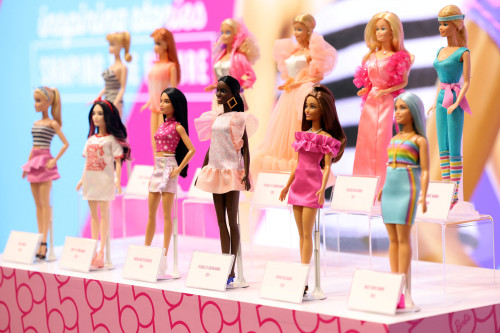(Reuters) -Toymaker Mattel posted a bigger-than-expected drop in second-quarter revenue on Wednesday, as weak Barbie sales in North America and cautious inventory planning by retailers amid global trade uncertainties weighed on demand.
The company, however, reinstated its full-year sales and profit forecast after pausing it in May, when U.S. President Donald Trump’s shifting trade policy upended global supply chains and cast uncertainty over consumer spending trends.
Mattel, the owner of brands such as Hot Wheels, Fisher-Price and Uno, now expects a rise in 2025 net sales of 1% to 3%, compared to its February target of a 2% to 3% increase. It forecast adjusted per-share profit between $1.54 and $1.66, below its prior estimate range of $1.66 to $1.72 apiece.
Earlier in the day, rival Hasbro raised its annual revenue outlook, betting on the strength of its digital games and cost-cutting efforts to weather the impact of mounting economic and tariff uncertainty.
Shares of the company fell 3.6% in trading after the bell.
Mattel’s finance chief Paul Ruh said timing shifts in retailer ordering patterns impacted its U.S. business, indicating that retailers such as Walmart, Target and Amazon.com were limiting building up inventory going into the key holiday season to minimize exposure to higher tariff rates.
Worldwide gross billings for dolls fell 19%, while the infant, toddler and preschool category, which includes Fisher-Price, Baby Gear & Power Wheels brands logged a 25% drop.
Mattel reported a 6% drop in net sales to $1.02 billion for the quarter ended June 30, missing analysts’ average estimate of a 2.7% decline to $1.05 billion, according to data compiled by LSEG.
The weakness was driven by a 16% fall in North America sales, primarily due to fewer new product launches for Barbie and delayed inventory decisions by retailers.
Adjusted profit came in at 19 cents per share, compared with the estimate of 15 cents each.
(Reporting by Savyata Mishra in Bengaluru; Editing by Alan Barona)


